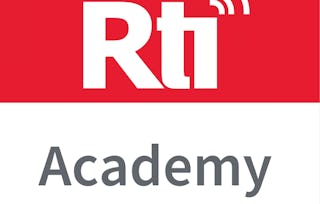The Diplomatic Practice course provides a comprehensive understanding of the evolving landscape of international relations. You'll explore negotiation techniques, the role of embassies and diplomats in safeguarding national interests, and the impact of globalization and technology on modern diplomacy. Discover the nuances of political, economic, and cultural diplomacy, along with emerging trends like diaspora and para diplomacy. Analyze the rise of hybrid diplomacy in a post-pandemic world.

Diplomatic Practice
Saisissez l'occasion de faire des économies ! Bénéficiez de 40 % de réduction sur 3 mois de Coursera Plus et d'un accès complet à des milliers de cours.

11 avis
Expérience recommandée
Ce que vous apprendrez
Evaluate digital tools and social media’s impact on diplomacy; propose strategies for blending them with traditional diplomatic practices.
Analyze how economic diplomacy compares to political and cultural diplomacy in different geopolitical contexts.
Create a diplomatic strategy for a current issue, integrating political, economic, and cultural diplomacy for foreign policy objectives.
Synthesize historical and modern diplomatic practices to develop innovative hybrid approaches addressing globalization and digital challenges.
Compétences que vous acquerrez
- Catégorie : International Relations
- Catégorie : Communication
- Catégorie : Cultural Diversity
- Catégorie : Crisis Management
- Catégorie : Digital Communications
- Catégorie : Economics
- Catégorie : Media and Communications
- Catégorie : Virtual Teams
- Catégorie : Negotiation
- Catégorie : Political Sciences
- Catégorie : Diplomacy
- Catégorie : Social Media
- Catégorie : Public Affairs
Détails à connaître

Ajouter à votre profil LinkedIn
7 devoirs
Découvrez comment les employés des entreprises prestigieuses maîtrisent des compétences recherchées

Il y a 7 modules dans ce cours
Préparer un diplôme
Ce site cours fait partie du (des) programme(s) diplômant(s) suivant(s) proposé(s) par O.P. Jindal Global University. Si vous êtes admis et que vous vous inscrivez, les cours que vous avez suivis peuvent compter pour l'apprentissage de votre diplôme et vos progrès peuvent être transférés avec vous.¹
Instructeur

Offert par
En savoir plus sur Governance and Society
 Statut : Prévisualisation
Statut : PrévisualisationUniversity of London
 Statut : Prévisualisation
Statut : PrévisualisationNational Taiwan University
 Statut : Prévisualisation
Statut : PrévisualisationBirla Institute of Technology & Science, Pilani
 Statut : Essai gratuit
Statut : Essai gratuitUniversity of California, Irvine
Pour quelles raisons les étudiants sur Coursera nous choisissent-ils pour leur carrière ?

Felipe M.

Jennifer J.

Larry W.

Chaitanya A.
Avis des étudiants
- 5 stars
100 %
- 4 stars
0 %
- 3 stars
0 %
- 2 stars
0 %
- 1 star
0 %
Affichage de 3 sur 11
Révisé le 15 févr. 2025
This class is what I thought it was very precise, full of great information. The instructor is amazing. I learned a lot in this class. I definitely suggest this class.

Ouvrez de nouvelles portes avec Coursera Plus
Accès illimité à 10,000+ cours de niveau international, projets pratiques et programmes de certification prêts à l'emploi - tous inclus dans votre abonnement.
Faites progresser votre carrière avec un diplôme en ligne
Obtenez un diplôme auprès d’universités de renommée mondiale - 100 % en ligne
Rejoignez plus de 3 400 entreprises mondiales qui ont choisi Coursera pour les affaires
Améliorez les compétences de vos employés pour exceller dans l’économie numérique
Foire Aux Questions
Plus de questions
Aide financière disponible,

